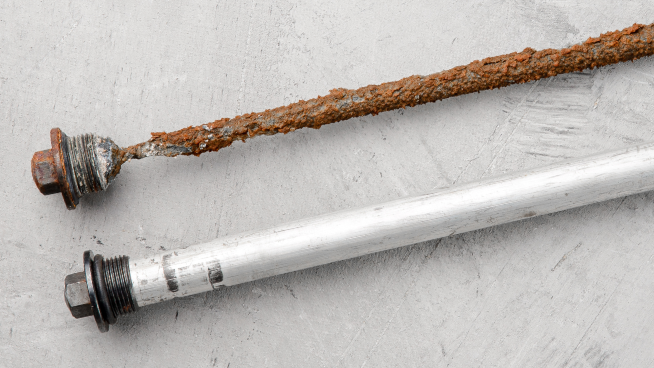
From The Detroit News | By Ken Calverley and Chuck Breidenstein
DETROIT, December 14, 2023 ~ Nearly every home has one.
Water heaters are ubiquitous in buildings, though they are not all the same.
In most cases we heat and store water in a tank which has either electric elements or a gas burner that takes domestic water and automatically keeps it hot until such time as we require it at a point of use, POU, like a sink or washing machine.
These are called standby systems because they keep the water heated until such time as we call for it.
Demand systems are gaining in popularity. These are typically tankless units that do not store hot water and do not heat it until it is needed.
PODCASTS:
December 16, 2023 ~ Chuck “The Inside Guy” Breidenstein and Ken “The Outside Guy” Calverly offer the knowledge and resources you need to make the home of your dreams a reality. Catch them every Saturday and Sunday from 10 a.m. to noon on 760 WJR.
(CONTINUED)
Tank units have an issue because they store water that may have contaminants in suspension that attach themselves to the tank lining. This lowers efficiency, diminishes capacity, and causes the units to fail prematurely.
One classic example of this process is the accumulation of calcium on the bottom of a unit. The hard calcium creates a barrier between the heating unit and the water and contributes to a loud, and distracting, noise when the unit is heating. Expanding air “pops” as it heats and inspires concern among many homeowners.
Hot water storage tanks are manufactured with a sacrificial anode rod that takes advantage of electrochemical activity to limit the opportunity for contaminants to attach to the inside walls of the tank.
Water tanks are generally made of steel with a thin ceramic coating. If this coating is breached at any point, the tank can begin to rust and leak. Corrosive elements in the water attack the rod instead of the tank because the rods are made of a more readily reactive metal.
Rods may be made from zinc, aluminum, a combination of both, or magnesium and may require replacement every three to five years. These rods attract contaminants and give themselves up, literally dissolve, over time to help preserve the tank.
Specific metal rods may offer greater protection for certain contaminants. As an example, some people experience a “rotten egg” smell when they use hot water.
This is the result of sulfate reducing bacteria in the water which releases hydrogen sulfide and the odor we all hate to have coming out of our faucet. A zinc rod will combat this issue.
A home with softened water may require a magnesium rod.
The most commonly diagnosed issue is hard water, with calcium, iron and magnesium in the water. An aluminum rod is suggested for this situation.
Depending on the level of minerals in suspension and the volume of water consumed, the rod will periodically have to be replaced.
Replacement is a relatively easy process. With the unit turned off and the water cooled and partially drained, the top of the rod is a threaded hex head on the top of the tank that can be turned such that the old rod can be extracted and replaced.
Some units may have the hot water line connected directly to the anode.
Another type of rod is one that is powered. It utilizes a slight electric current to neutralize the ion activity in the tank. These rods are not a sacrificial type, so while they are initially a bit pricier, they should not have to be replaced.
The model number of the water heater should allow you to access the specifics of the factory installed rod, though you may have to obtain that information online.
Replacement rods can be obtained through any plumbing supply outlet and most big box stores.
Thought should be given to available overhead clearance when a replacement is needed. Segmented rods or even bendable rods can be purchased for situations where the ceiling overhead does not allow for insertion of a long, single piece, rod.
Since the tankless or demand units do not store water, they do not require anode rods.
If you have a demand type unit, it is important to consider water quality and discuss annual maintenance with the installing plumbing company.
While some may consider this a DIY project, the Guys suggest a professional to avoid leaks and mistakes.
Professionals like those you’ll find at InsideOutsideGuys.com.
**
For housing advice and more, listen to “The Inside Outside Guys” every Saturday and Sunday on 760 WJR from 10 a.m. to noon, or contact them at InsideOutsideGuys.com.
MORE FROM THE INSIDE OUTSIDE GUYS:





